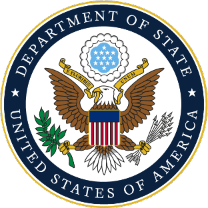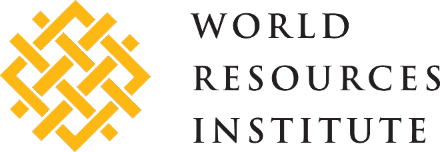Geographic Scope: Africa
Patricia Raxter
Patricia is a Subject Matter Expert on transnational wildlife crime with a passion for conservation and a drive to identify real solutions to complex social-ecological problem sets. She provides detailed analysis to United for Wildlife Taskforce members in the finance and transport sector on wildlife trafficking networks, trends, and typologies with the aim of disrupting network activity.
Christopher Donald Jagger
From jungles to conflict zones to board rooms, Chris is an experienced professional with a track record for getting things done, more lately in senior advisory roles, policy development, and international diplomacy and cooperation. Trusted by Heads of State, tolerated by Generals, and invited back by both—because knowing when to speak plainly is just as important as knowing when to say nothing at all. In 2018 he was introduced to the conservation sector initially working with TRAFFIC on various matters relating to law enforcement, intelligence, risk management and transnational organised wildlife crime. Between 2022 and 2025 Chris held the role of Lead for Law Enforcement Support at TRAFFIC, a position that covered a wide portfolio of activities.
Well-honed skill in turning big-picture and long term thinking into practical action. Adept at working in different sectors including private, government, academic, charity and international agencies. Used to navigating politically sensitive environments, managing high-level partnerships, and advising at ministerial, head of service, and executive levels. When it comes to stakeholder management, Chris finds that building trust and understanding, navigating personalities, conflicting agendas, and competing priorities is an art form best practiced with careful listening at its helm.
Significant leadership and project management experience working with multinational institutions, including NATO, the EU, and the United Nations, to enhance global security and governance. Specialist knowledge, experience and skills in the field of risk management, intelligence tradecraft, counterterrorism, and transnational organised crime. When it comes to making decisions under pressure, managing sensitive operations, risk and crisis, Chris believes that keeping ones head while others lose theirs isn’t just poetic—it’s the only way to work.
Between 2018 and 2020 Chris was the Security Sector Reform Advisor to the Presidency of The Gambia. This was a senior diplomacy role which included leading a team that developed the countries first counterterrorism strategy and national security vetting agency.
Chris is expert at building trusted human-networks to support professional activities and encouraging a big-team approach in his colleagues and collaborators. His talent for inspiring leadership in others as well as building high-performing teams has been noted as a key competence throughout much of his career.
In the financial services sector, Chris has spent time working as a consultant to financial services institutions helping them establish their AML strategies and standards. More recently he has been responsible for building partnerships between governments, the banking sector, and financial intelligence units.
Between 2005 and 2011 Chris worked at NATO Joint Force Command as the Organised Crime and Border Security Advisor, he was later promoted to Director of the Kosovo Vetting Unit and lastly as the Director of the Maritime Security Forum for the Mediterranean basin.
Throughout his year career, Chris has worked in many countries and with people with incomparable backgrounds, from very different cultures in Europe, W. Balkans, Africa, and Asia. These experiences have taught him to value different perspectives and allowed him to more easily envision a wider range of high impact ways of getting things done. As his career achievements show, Chris has a knack for turning out-of-the-box thinking into action.
Marcy Mendelson
Marcy Mendelson Wildlife Criminologist | Conservation Researcher | Documentary Filmmaker
Marcy Mendelson is an interdisciplinary expert in wildlife crime, environmental justice, and human-wildlife conflict, with over a decade of experience in investigative fieldwork, intelligence analysis, and global communications. A member of INTERPOL’s Wildlife Crime Working Group (Civil Society Division), she holds an MSc in International Criminal Justice (Wildlife Criminology) from the University of Portsmouth, where her thesis on gender and cheetah trafficking was awarded with distinction.
Her analytical and investigative work has supported organizations including the Environmental Investigation Agency and Freeland. She has produced intelligence reports on illegal wildlife trade and conducted field journalism across Eastern and Southern Africa, with bylines in National Geographic, AFAR, and Africa Geographic. She is the award-winning director of The Last Cheetahs of Solitaire, a conservation documentary currently screening internationally and on the WaterBear Network.
Mendelson regularly speaks on the silencing of conservation actors in politically volatile contexts, most recently presenting on Ecopoliticide—the strategic targeting of conservationists—as part of CECRN’s Global Environmental Justice Conference (2025). Her work integrates criminological research, visual storytelling, and advocacy for coexistence, with a sustained focus on gender, displacement, and transnational enforcement dynamics in nature crime.
Website: Cheetah-Watch.com
Portfolio: MendelsonImages.com
Talk: Ecopoliticide – CECRN Global Environmental Justice Conference
Location: Based in Berlin, Germany & Global / U.S. & Africa-based operations
Languages: English (native/ fluent), German B1
Security Clearance: Eligible upon request
Albert DIANDY
Safety and Security Manager, Wildlife Conservation Society
Jessica Graham
Jessica Graham serves as the President of JG Global Advisory, LLC a minority, women-owned small business in the Washington, DC area that provides integrated solutions responding to the challenges of environmental security. Through strategic policy and planning, business development, and project management, Jessica has supported hundreds of conservation NGOs around the globe to secure tens of millions of dollars in funding to protect biodiversity. She previously worked with INTERPOL’s Illicit Trade Sub-Directorate and also served as a Senior Advisor at the U.S. Department of State where she created the wildlife crime program for the Bureau of International Narcotics and Law Enforcement Affairs (INL) and served as a negotiator working on crime, biodiversity and climate change issues in the United Nations. With over 15 years of dedicated experience working on international issues, she regularly lectures and implements global projects for both the non-profit and private sectors. Her leadership has been instrumental in developing environmental crime programs and facilitating partnerships aimed at counter wildlife trafficking projects. Her work has impacted long-standing policy and capacity-building efforts across continents, from Africa to Latin America and Asia, reflecting her deep commitment to enhancing global security and conservation.
She serves on the Board of several international and locally based organizations in Washington, DC that are dedicated to the environment and empowering youth and founded a non-profit organization aimed at protecting vulnerable communities from global insecurity. Jessica received her Master’s degree from the University of California, San Diego where she studied International Politics, Environmental Policy, and Chinese Studies and holds a Bachelor’s degree from the University of Florida.
Jessica has conducted research and published several pieces on wildlife crime, including co-authoring a chapter in Women and Wildlife Trafficking: Participants, Perpetrators, and Victims, reviewing the zero instances of corruption in all-female anti-poaching units across Africa in an academic textbook in March 2022.
Open Timber Portal
The Open Timber Portal is an initiative launched by the World Resources Institute to incentivize the production and trade of legal timber. The OTP compiles information from three different sources: official concession boundaries and the list of registered timber producers from the government; documents uploaded voluntarily by timber producers to demonstrate compliance; and observations by third party forest monitors.
#MineAlert-Africa Map
#MineAlert-Africa is a geo-journalism platform documenting biodiversity threats posed by mining licenses across the African continent. It confronts official boundaries of mining licenses across over 21 African countries against protected areas, allowing journalists for a quick verification of any license holders operations. The data featured covers a snapshot taken in November 2023.
LionLocalizer
LionLocalizer is an online tool to provide intelligence into the possible geographic origin of any seized lion body parts. It uses genetic sequences generated from seized lion parts to match them against a database with known, georeferenced lion genetic sequences.
Loxodonta Localizer
Just as LionLocalizer can provide intelligence into the possible geographic origin of any seized lion body parts, Loxodonta Localizer is able to use genetic sequences generated from elephant body parts, including ivory, to match them against a database known, georeferenced elephant genetic sequences.
Illegal Wildlife Trade – Red Flags
The Illegal Wildlife Trade (IWT) Financial Flows Toolkit is for financial institutions with particular focus on Africa, Asia and broader global financial centres. The toolkit also provides comprehensive resources for addressing wildlife trafficking, including practical guides and strategic frameworks. It offers tools for law enforcement and conservationists to improve their response to illegal wildlife trade, focusing on investigation techniques, legal frameworks, and inter-agency cooperation. The red flag guidance document within this toolkit compiles a set of key IWT-related red flag indicators to help financial institutions identify the key signs of suspicious activity related to IWT. Some of these red flags are common to other types of crime, but are particularly relevant to IWT.


